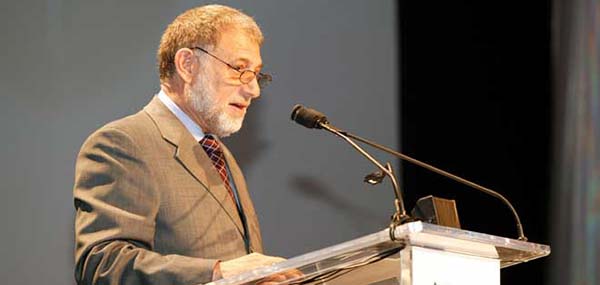KABUL - Afghanistan has improved voting procedures to ensure April's presidential election is not plagued by the complaints of irregularities and fraud that marred the last vote in 2009, a senior official said on Sunday.
But Yousof Nooristani, head of Afghanistan's Independent Election Commission (IEC), said he did worry that violence could disrupt the voting in the first democratic leadership transition in Afghanistan's history.
"We have learned good lessons from past mistakes ... or weaknesses," Nooristani told Reuters.
"We have adopted a number of mechanisms to prevent or mitigate fraud. It will not be possible to rule it out, but we will try to mitigate as much as possible," he said.
New measures include improved training for electoral officials to deal with fraud, more secure handling of voting materials and simpler ballots, a key issue in a country where just 28 percent of people are literate.
The polls occur at a delicate moment for Afghanistan, as NATO nations withdraw despite ongoing violence and a standoff continues between Washington and President Hamid Karzai over a pact to permit some U.S. troops to stay into next year.
AVOID PAST PROBLEMS
Officials say they have been working to avoid the problems that married the August 2009 polls, which brought Karzai a second term amid allegations of vote-stuffing, intimidation and interference from both local and foreign officials.
A scheduled run-off that year was canceled when Abdullah Abdullah, a former foreign minister and current contender, dropped out due to what he called a lack of a credible vote.
In one improvement, Nooristani said, voting materials will not be delivered to some 6,754 polling centers across the country until shortly before the election to prevent tampering.
Unlike the last election, when some voting took place in private homes, polling centers will be in government buildings such as schools or clinics and votes will be counted on-site.
Ballot papers will be simpler, he said, in part because there are only 11 candidates now compared to 42 in 2009. Voters' fingers will be marked with two different kinds of ink to prevent repeat voting.
Nooristani said he expected higher turnout this year than in 2009, when at best half of registered voters showed up.
But other officials doubt Afghanistan, where many people will brave snow or long distances to vote, can pull off a credible election.
Even the country's electoral complaints board has said it fears inadequate funding and staff could impede its ability to arbitrate problems.
INSURGENT VIOLENCE A WILD CARD
Nooristani acknowledged that violence could pose a last-minute problem, in part because the Taliban seem to have foregone their usual winter lull in fighting ahead of the vote.
"This time they are not hibernating ... They have been told by their bosses to be more active," he said.
On Saturday, the United Nations said that civilian deaths increased in 2013 as fighting intensified between government forces and insurgents.
Some 414 designated voting centers are now due to be closed due to insecurity, Nooristani said, but the total could change.
Nooristani said a widely expected runoff could take place in early to mid-June. The timing is important for Washington, which hopes to quickly finalize its security deal and make plans for a post-2014 troop force.
If an impasse with Karzai over the deal continues, some U.S. officials hope the deal can be signed with his successor.
Nuristani said both Karzai and foreign actors had been 'hands-off' in the lead-up to the elections, unlike in 2009.
In a new memoir, former U.S. Defense Secretary Robert Gates said senior U.S. officials clumsily tried to boost Karzai's successors in that race, ultimately souring bilateral ties. (Reuters)

